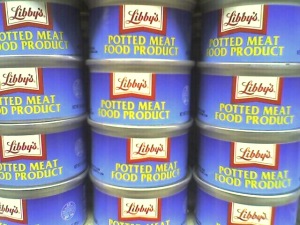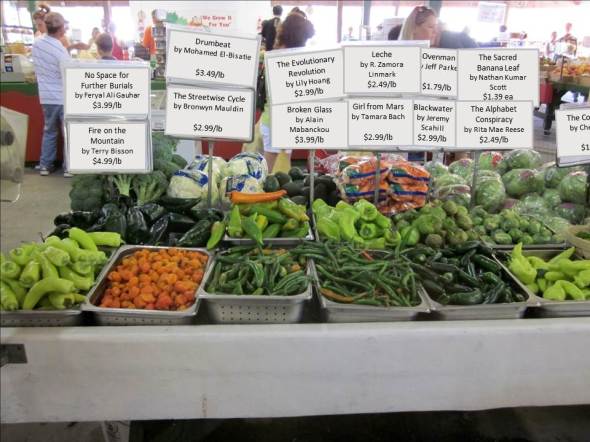draft one
Posted: July 29, 2011 Filed under: slow lit | Tags: books, community supported literature, locallit, organic literature, publishing, slow literature 1 CommentThere was a time when all literature was slow. It took weeks, months and often years to write out all the words that went into a book-length text in longhand. The copying process at first was by hand. When the printing press came along, it still took hours to painstakingly place each letter into alignment, one by one. Reading these publications also took time. Families and friends often sat together and read to one another, discussing the text and its meaning in their lives as they read.
Today, words come at us fast and furious all day long in blogs, bumper stickers, text messages, t-shirts, newspapers, billboards, magazines, emails, and, oh yes, books. Our days are filled making choices about which texts we will read and which ones we will ignore.
In a nanosecond I decide to scroll past the email from my boss in favor of reading one from my sister. I click to a website and scan it quickly for what’s important. Eyetracking studies show that we bypass much of what is on any single website without actually seeing it. Our past experiences reading online content have blinded us to entire sections of the webpages we think we are reading.
Which makes me wonder: How have the books I read in the past change the way I will read in the future?
Our experience with text and the written word today is radically different from what it was a generation ago, or even ten years ago. And yet, the number of books published every year is on the rise. In 2009, nearly 300,000 new books were published in the U.S. alone through traditional publishing channels. Some 750,000 more were published through non-traditional channels, nearly three times as many as the year before.
The global publishing industry is going through seismic shifts today that are changing the way literature is distributed. Online booksellers make it possible for any person with an internet connection to purchase a book she is hearing about on the radio before the interview with the author is finished. Ebook publishing makes it possible for an unknown author’s work to be listed beside bestsellers on virtual bookshelves. A reader can download free audio books read by the author from podcast sites. With blogs, tweets and social media in hand, a woman who calls herself a “bookslut” can turn herself into a major tastemaker in the publishing industry.
With the volume of words coming at us every day on the rise, and the ways they come at us moving ever faster, the reading choices we make and how we make them are more important than ever before.
They also raise one urgent question for people who read: How do my reading choices change me and the world?
Think about the last piece of text you read. Did it help you understand the world around you better? Did it give you greater empathy for people and the planet? Did the supply chain that delivered it to you enrich the environment or do damage to it? Did the money you spent to acquire it stay in your local community? Were you able to connect personally with the people who produced it – the writer and publisher?
These are the kinds of questions people have been asking about their relationship with food for many years now. As our experience of the written word changes, we have an opportunity today to rethink our roles and relationships as readers, writers, publishers and booksellers.
For years the food industry has delivered to giant grocery stores boxes and cans of food that is cheap and easy to produce, the emphasis on large volume sales and low unit cost. Fruits and vegetables are picked while still green, then loaded into boxes where they ripen into something bland and tasteless in the back of a truck on their way to markets hundreds or thousands of miles away. Farmworkers work in near-slavery conditions in the fields. All this happened out of sight and out of mind from the people who bought and ate it.
Until one day consumers began to demand something better. They wanted fresher food that was locally grown. They wanted organic food, and they wanted more variety. They had the audacity to want to know the people who grew their food, and to know that those people were treated well.
As a reader – or a writer – do you dare to be so audacious?
Today, six transnational corporations control most of the books and magazines we see on the bookshelves of major bookstores and online booksellers. They deliver to us content that is cheap and easy to produce. They publish with the sole intent of selling thousands of units at low unit cost. The number one factor underlying their publishing, marketing and distribution decisions is not providing high quality content, contributing to our cultural discourse, engaging in the democratic process or building a healthy literary ecosystem. Their primary interest is in maximizing profits for their shareholders.
Don’t get me wrong, there’s nothing intrinsically wrong with a mystery, romance or celebrity memoir. There is room in the reading world to enjoy a good blog post or retweet a clever 140-character witticism. Sometimes I just have a hankering for a burger or food truck tacos. Sometimes I barely have time to toss a frozen pizza into the oven for dinner.
But if that was all I ate, I’d be unhealthy. Trust me, that tweet you read yesterday will not age well like a fine cheese or a fine novel.
The big chain grocery stores sell healthy broccoli, and big corporate publishers have brought us amazing books by Toni Morrison, Gabriel García Márquez and Margaret Atwood. And I’ve certainly read my share of not-so-great independently produced literature. The point is not about what they provide, but what we as readers demand, and what kind of relationship we want to have with the people who write, publish and distribute the books we read.
The food revolution has changed the way we think about the food we eat. It’s time to bring that same approach to literature.
After all, literature is, in many ways, like food. It enriches our minds, gives us strength to work and play, gives us pleasure. More than food, though, it helps us become better citizens of the world. If tweets and blogs and cheap, mass-produced paperbacks were all I read, my brain would go flabby. To enrich my mind and help me engage intelligently with the world and the people around me, I have to make conscious, thoughtful choices about what I read.
Consider this:
Slow Literature stands at the crossroads of writing, ethics and pleasure. It opposes the standardization of taste and culture, and the unrestrained power of the publishing industry multinationals and industrial literature. We believe that everyone has a fundamental right to the pleasure of good writing and consequently the responsibility to protect the heritage of literature, tradition and culture that make this pleasure possible.
Or this:
Community Supported Literature has at its center a shared commitment to building a more local and equitable literary system, one that allows publishers to focus on literary stewardship and still maintain productive and profitable small publishing firms.
Those statements represent two movements within the food revolution, slow food and community supported agriculture, edited slightly for literature. They are only two of many models for how we could rethink our relationships with the written word.
The food movement is as diverse as the people who care about what they consume. Whether they focus on fair trade, organic or locavore food, what they all have in common is a concern for quality and for the wider world. These movements have changed both the way we shop for food and what grocery stores put on their shelves. They have taught us to make thoughtful decisions about where we shop and what we buy. At the heart of their success is that consumers and producers are working together to improve our food ecosystem.
What part of the literary ecosystem do you care about? How do you want to nurture and sustain it?
Supporting your local literary ecosystem is good for you, your local economy and the broader culture. Your purchase of a book by a local independent publisher at a local independent bookstore can help to keep both alive. When you inform yourself about how writers and publishers are paid for what you read, you arm yourself to make intelligent decisions. What’s more, a local author or publisher might visit your book group or come to your slow lit dinner party. And by demanding variety, creativity and experimentation, we fight back against homogenization of the culture.
As with food, so with literature: All of us have a role in investing in and supporting a healthy ecosystem. It takes time to find your local, independent producers and to create something that will nourish you body and soul. It may cost a little more, and it may take longer to read, but that time and money goes into more than just a book. You are investing in something you care about, whether it is the quality, variety, sustainability or longevity of our literary culture.
Agree with what you’ve read here? Disagree? Does it inspire you?
Add your comments below.



